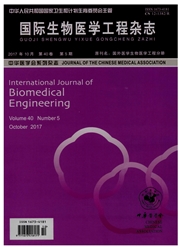

 中文摘要:
中文摘要:
免疫检查点是人类进化出的控制免疫反应强度和持续时间、最大限度减少过度活跃的免疫应答导致的过度炎症反应和自身免疫性疾病的一种机制。相比于放疗、化疗等传统治疗手段,免疫疗法因其对正常细胞毒副作用小而在肿瘤治疗中日渐兴起。该疗法种类繁多,其中免疫检查点抑制疗法通过解除肿瘤免疫耐受、激活机体自身免疫系统进而清除肿瘤细胞,治疗手段极具潜力,成为肿瘤治疗中的研究热点。针对肿瘤免疫效应机制和逃逸机制进行了阐述,综述了抗细胞毒T淋巴细胞相关抗原4和程序性细胞死亡受体1两个免疫检查点抑制剂的作用机制和临床应用,对免疫检查点抑制剂的应用前景进行了展望。
 英文摘要:
英文摘要:
Immunological checkpoints are a mechanism evolved by human beings to control the intensity and duration of immunoreaction and minimize the excessive inflammatory responses and autoimmune diseases caused by overactive immune responses. Compared to radiotherapy, chemotherapy and other traditional treatments, immunotherapy has fewer side effects on normal cells, and has become an emerging technology in tumor treatments. As the focus on tumor treatment research, immunological checkpoint therapy can damage the tumor ceils by breaking the immune tolerance and activating the body's own immune system, which make it a promising treatment method. In this paper, the mechanisms of immune activation, immune regulation and immune evasion were described. The action mechanism and clinical application of anti-cytotoxic T lymphocyte-associated antigen 4 (CTLA-4) and programmed cell death receptor-1 (PD-1) were summarized. The application prospect of immune checkpoint inhibitors was discussed.
 同期刊论文项目
同期刊论文项目
 同项目期刊论文
同项目期刊论文
 期刊信息
期刊信息
